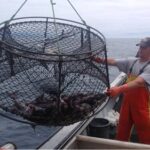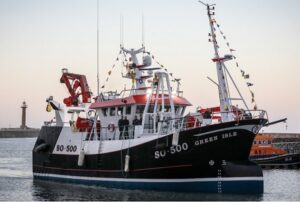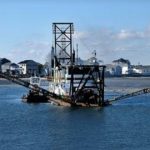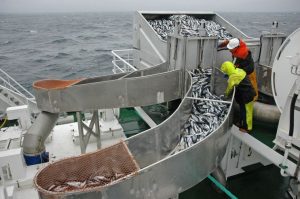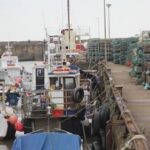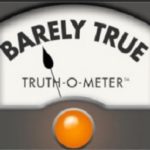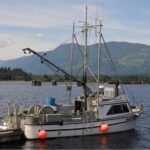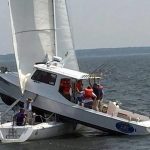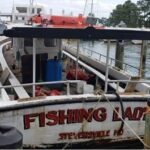Daily Archives: May 6, 2013
BULLARD, SHELLEY, and COD: or Fish Being and Nothingness – Featured Writer Dick Grachek
 “Returning Our New England Fisheries to Profitability”: “You’re doin’ a great job, Brownie” aka, Janie, Johnny, Petey. You should be proud. Mission Accomplished?
“Returning Our New England Fisheries to Profitability”: “You’re doin’ a great job, Brownie” aka, Janie, Johnny, Petey. You should be proud. Mission Accomplished?
In her resignation email Lubchenco made the gravity-defying claim that she had made “notable progress” in “ending overfishing, rebuilding depleted stocks, and returning fishing to profitability”; but soon after, John Bullard “In an interview at the Times, Bullard said the telling figure was that the fleet caught only 54 percent of the allowed catch in 2012, and reasoned from that statistic that there is a dearth of inshore cod, a situation that warrants serious action to reverse.” Richard Gaines March 8, 2013 Gloucester Daily Times, “NOAA head explains stock stand”
Peter Shelley of Conservation Law Foundation explains the Cod Dilemma in a wormy little video he so humorously named “For Cod’s Sake”…..continued
Arctic Ocean “particularly vulnerable” to acidification: new report. “When marine ecosystems are affected, this will also have implications for humans”
Nunatsiaq News- 
New Brunswick – Probe of fishing boats fire in Tabusintac continues
CBCNews – The fire ravaged the vessels, which were burned so badly, they sank. Ian Benoit and his twin brother both lost their boats in the blaze. Benoit, a captain for eight years and fisherman for 18, said he’s devastated. It’s a huge finan cial blow, he said. Although he has insurance, it will only cover about $50,000. The cost of his boat is at least $150,000, he said. continued
cial blow, he said. Although he has insurance, it will only cover about $50,000. The cost of his boat is at least $150,000, he said. continued
Prince Edward Island Lobster price could be below cost
Prices for P.E.I. lobster at the wharf could come in around $3 a pound, and if that’s the case fishermen should tie up their boats, says P.E.I. Fishermen’s Association executive director Mike McGeoghegan. continued
Opinion: Some students learn from mistakes – Jack Emberly, retired teacher, local author and environmentalist.
Maple Ridge News – In the 1960s, the DFO paid $15 for harbor seal “snouts,” proof an enemy of Pacific salmon had been killed. Bounty hunters – commercial and recreational fishermen eager to help the cause – shot thousands of animals. Many seals sank before they could give up their noses. Dr. Lance Barrett-Lennard, biologist Vancouver Aquarium, recalls this culling campaign as an example of government tinkering with a perfectly self-regulating bio-system. alrighty then ,,,,,,,,,continued
Atlantic Bluefish 2013 and 2014 Final Catch Limits Approved -New Spiny Dogfish Exemption Areas East and West of Cape Cod
Today, NOAA/ NMFS announced approval of the final 2013 and 2014 catch limits for the Atlantic bluefish fishery. The Atlantic bluefish total allowable landings are 23.861 million lb for 2013 and 23.446 million lb for 2014. The 2013 catch limits go into effect on June 6…..At the request of Northeast groundfish sectors, NOAA Fisheries is implementing an exempted fishery for spiny dogfish, which would exempt vessels from using a groundfish fishing day-at-sea. Link at Public Notices.
NOAA ship Miller Freeman NOAA ship Miller Freeman in Seattle
 SEATTLE (AP) – Seattle firefighters are trying to extinguish a smoldering fire on a ship on Lake Washington. continued
SEATTLE (AP) – Seattle firefighters are trying to extinguish a smoldering fire on a ship on Lake Washington. continued
Final draft of ocean plan out, management details unclear. Don Young see’s right through it!
 Peninsula Clarion – “From the very beginning, I have voiced my opposition to this red-taped monstrosity the administration calls a National Ocean Policy. Through hearings, in both Washington D.C., and Anchorage, and in meetings with fisherman from across the country, it’s become clear that this National Oceans Policy will bring a variety of negative implications, from both an economic and management prospective,” Young said in a statement. “From oil and gas, to fishing, agriculture, or home building, no industry on land or at sea escapes the net of this new policy.” continued
Peninsula Clarion – “From the very beginning, I have voiced my opposition to this red-taped monstrosity the administration calls a National Ocean Policy. Through hearings, in both Washington D.C., and Anchorage, and in meetings with fisherman from across the country, it’s become clear that this National Oceans Policy will bring a variety of negative implications, from both an economic and management prospective,” Young said in a statement. “From oil and gas, to fishing, agriculture, or home building, no industry on land or at sea escapes the net of this new policy.” continued
Cool weather delays Louisiana inshore shrimp season
NEW ORLEANS (AP) — This has been the second-coldest spring in the last century, and as a result, brown shrimp have grown more slowly than the U.S. economy. That put the  in a tight squeeze when setting the dates Thursday for the 2013 inshore shrimp seasons. continued
in a tight squeeze when setting the dates Thursday for the 2013 inshore shrimp seasons. continued
Calgary city council should just swim away from shark fin issue
Calgary Sun – The latest in this list of things that will supposedly make Calgary a world leader is a shark-fin registry. Yes. That whole thing is back. As we told you in Sunday’s Sun, the Shark Fin Task Force (do they come with a Mike Post-penned TV theme song?) held a handful of meetings, coming to the wise conclusion that a) a municipal ban would likely lose in court because the city has no authority to enact such a thing and b) there’s not much preference for a bylaw. continued
Great news for US fisheries! – Texan Perry speaks at offshore energy convention – It’s all about the oil!
Texas Gov. Rick Perry and leaders of several other coastal states will speak about energy development at the Offshore Technology Conference in Houston. A panel discussion will be held Monday afternoon. The event is promoted as a look at the appropriate role of coastal states and the federal government in making decisions for offshore development. Governors or other representatives from Alaska, Alabama, Mississippi, South Carolina, North Carolina, Virginia and Louisiana are also scheduled to take part. The OTC 2013 technical program covers a wide range of topics related to the offshore energy industry. OTC offers key insights by leading experts on emerging technologies, project updates, best practices, safety and environmental issues, and the changing regulatory environment. details
Connecticut Senators push for Long Island Sound preservation
nhregister – Four U.S. Senators are pushing for increased funding for the preservation of the Long Island Sound. Senators Richard Blumenthal (D-Conn.), Chris Murphy (D-Conn.), Kirsten Gillibrand (D-N.Y.), and Charles Schumer (D-N.Y.) are asking Senate leaders of the Subcommittee on Interior, Environment and Related Agencies to fund at least $10 million for the Environmental Protection Agency’s Long Island Sound program, according to a press release from Blumenthal’s office. continued
Researchers think industrious oysters could clean up Chesapeake
 WashingtonPost – Behold the tiny oyster. No, not on the half-shell, with a squirt of lemon, but in its watery habitat, the Choptank River. Out there on a reef with many other oysters, the bivalve is awesome, a janitor that helps remove pollution with incredible efficiency. continued
WashingtonPost – Behold the tiny oyster. No, not on the half-shell, with a squirt of lemon, but in its watery habitat, the Choptank River. Out there on a reef with many other oysters, the bivalve is awesome, a janitor that helps remove pollution with incredible efficiency. continued
NW salmon threat still disputed
Like mariners scanning the horizon from the crow’s nest, scientists have for years been on the lookout for signs that a dreaded salmon-killing disease, scourge to farmed salmon in other parts of the world, has arrived in the Pacific Northwest, threatening some of the world’s richest wild-salmon habitats. Most say there is no evidence. continued
Bill Kelly, Florida Keys Commercial Fishermen’s Association, to lobby against annual catch limits at “Managing Our Nation’s Fisheries” Conference
keysnews.com – “I’m going to address annual catch limits, and their effects on the commercial fishing industry,” Kelly said. “We want to make sure fishery management is based on sound science.” continued

































